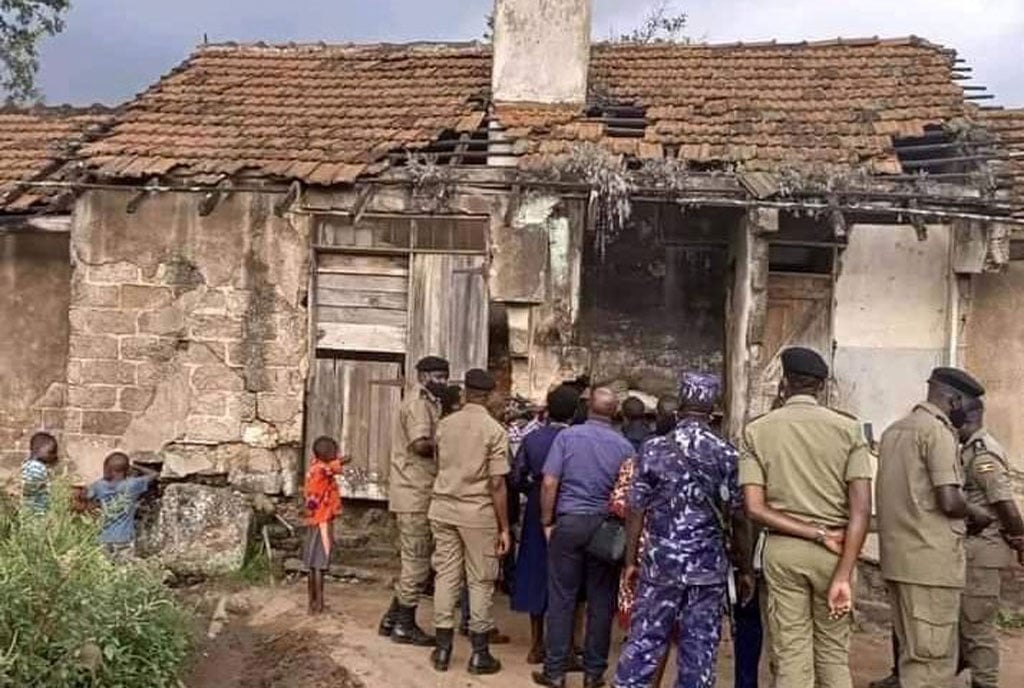Joint military forces behind Sudan arrests denounced as 'coup'

In this file picture taken on October 21, 2021, Sudanese demonstrators raise national flags as they take part in a protest in the city of Khartoum Bahri to demand the government's transition to civilian rule. PHOTO | AFP
What you need to know:
- The developments come just two days after a Sudanese faction calling for a transfer of power to civilian rule warned of a "creeping coup", during a news conference that an unidentified mob attacked had sought to prevent.
- Sudan has been undergoing a precarious transition marred by political divisions and power struggles since the April 2019 ouster of Bashir.
Joint military forces were behind the detention Monday of civilian members of Sudan's ruling council and ministers in the transitional government, the information ministry said, in what activists denounced as a "coup".
The detentions came as tensions peaked between the military and civilian figures who shared power since August 2019 following the ouster of autocratic president Omar al-Bashir months earlier.
Internet services were cut across the country and the main roads and bridges connecting with the capital Khartoum shuttered, the information ministry said.
Dozens of demonstrators set car tyres on fire as they gathered on the streets of the capital to protest against the detentions, an AFP correspondent said.
"Civilian members of the transitional sovereign council and a number of ministers from the transitional government have been detained by joint military forces," the ministry said in a statement on Facebook.
"They have been led to an unidentified location."
The statement did not specify whether Prime Minister Abdalla Hamdok was among those detained, despite media reports that he had been placed under house arrest.
State television began broadcasting patriotic songs.
The Sudanese Professionals Association, an umbrella group of trade unions which were key in leading the 2019 anti-Bashir protests, denounced what it called a "military coup" and urged demonstrators "to fiercely resist" it.
The developments come just two days after a Sudanese faction calling for a transfer of power to civilian rule warned of a "creeping coup", during a news conference that an unidentified mob attacked had sought to prevent.
Sudan has been undergoing a precarious transition marred by political divisions and power struggles since the April 2019 ouster of Bashir.
Since August 2019, the country has been led by a civilian-military administration tasked with overseeing the transition to full civilian rule.
But the main civilian bloc -- the Forces for Freedom and Change (FFC) -- which led the anti-Bashir protests in 2019, has splintered into two opposing factions.
"The crisis at hand is engineered -- and is in the shape of a creeping coup," mainstream FFC leader Yasser Arman told Saturday's press conference in Khartoum.
"We renew our confidence in the government, Prime Minister Abdalla Hamdok, and reforming transitional institutions -- but without dictations or imposition," Arman added.
Rival protests
Tensions between the two sides have long simmered, but divisions ratcheted up after a failed coup on September 21 this year.
Last week tens of thousands of Sudanese marched in several cities to back the full transfer of power to civilians, and to counter a rival days-long sit-in outside the presidential palace in Khartoum demanding a return to "military rule".
Hamdok has previously described the splits in the transitional government as the "worst and most dangerous crisis" facing the transition.
On Saturday, Hamdok denied rumours he had agreed to a cabinet reshuffle, calling them "not accurate".
The premier also "emphasised that he does not monopolise the right to decide the fate of transitional institutions."
Also on Saturday, US Special Envoy for the Horn of Africa Jeffrey Feltman met jointly with Hamdok, the chairman of Sudan's ruling body General Abdel Fattah al-Burhan, and paramilitary commander Mohamed Hamdan Daglo.
"Feltman emphasised US support for a civilian democratic transition in accordance with the expressed wishes of Sudan's people," the US embassy in Khartoum said.
Analysts have said the recent mass protests showed strong support for a civilian-led democracy, but warned street demonstrations may have little impact on the powerful factions pushing a return to military rule.





